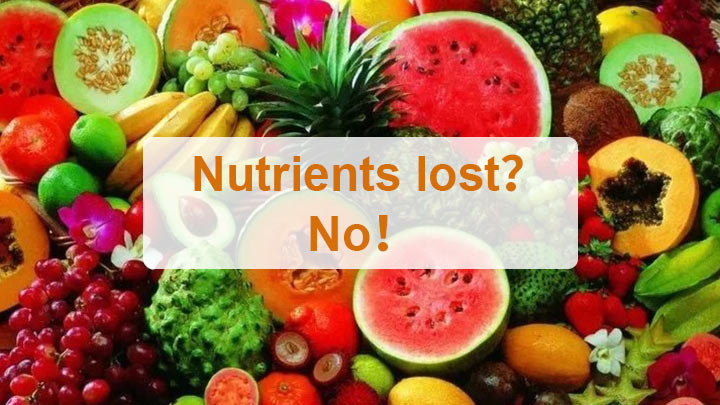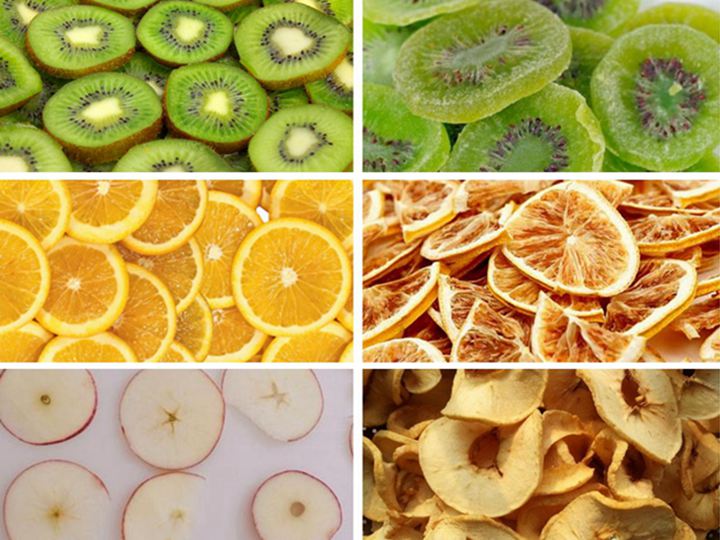
Dried fruits have a special taste and are loved by many people. However, many people have a question about dried fruits: Compared with fruits, are the nutrients lost? So what is the nutritional value of the dried fruit?
The importance of fruits to the human body in the diet is well known, and fruits are loved by light eaters and even most consumers. Fruits are rich in antioxidants, vitamin E, and trace elements, which have the effect of beautifying and rich in natural plant compounds that can slow down aging. In addition, fruits also have benefits such as disease prevention and blood pressure reduction.
Benefits of dried fruit
- Can eat all the fiber in the peel
- There is no risk of protease and unpolymerized tannins injuring the digestive tract. (Active proteases and tannins are irritating to the intestines)
- Concentrated all the mineral ingredients

- Retains most of the antioxidant ingredients
- Easy to carry and store, it is a high-quality snack
- Easy to cooperate with other kinds of food
What is lost in the dried fruit?
There is no harm if there is no comparison. Let’s take a look at the ranking of nutrients in fruits and dried fruits~
- Fruits: vitamins>dietary fiber>minerals (trace elements)
- Dried fruits: sugars>minerals>dietary fiber
Dried fruits have higher sugar content, and there is a certain index to control the usual consumption. And we all think that fresh fruit pulp is rich in nutrients, and dried fruit may lose a lot of nutrients in it after secondary processing, isn’t it?

For example, the water content in most fresh fruits can reach about 85%, even bananas with a dry taste can reach more than 60%. After processing, the original body of the “water” removed is actually fruit juice. The vitamins contained in fruits, most of the water-soluble substances such as vitamin C, are dissolved in the “fruit juice”. If the water is removed, the vitamin C nutrients of the fruit will be lost. However, in addition to the significant decrease in vitamin C of dried fruits, other nutrients such as carbohydrates (sugars), minerals, dietary fiber, and other nutrients are basically not reduced but have been concentrated and improved. In fact, dried fruits are not “junk food” without nutrition, on the contrary, they are a treasure trove of nutrients!
The advantages of dried fruit
- Various dried fruits are a good source of mineral supplements
After the fruit becomes dried, calcium, potassium, magnesium, iron, zinc, boron, and other mineral components are not lost but are concentrated, and the nutrient density is greatly improved. For example, raisins, dried apples, and dried bananas are good sources of minerals such as potassium and magnesium.
- Rich in antioxidants
Dried fruits retain most of the antioxidant components. For red, blue, purple, and black fruits, anthocyanins are particularly rich in antioxidants, and they will be concentrated after drying. In particular, dried red raisins and black currants with thicker peels and darker colors have better health effects when eaten with the skins.
- Especially suitable for people with indigestion and cold fear
Fresh fruits often contain more active proteases and tannins. These substances are a disaster for people with indigestion. The dried fruit does not have the risk of protease and unpolymerized tannins injuring the digestive tract. Moreover, traditional health regimens often advise people with indigestion not to eat fruits on an empty stomach. In fact, to a large extent, they are afraid of the damage of enzymes or tannins to the mucous membrane of the digestive tract. Once it becomes dry, the protease is inactivated and the tannins are polymerized, and the irritation to the digestive tract is greatly reduced. For the elderly with indigestion and coldness, dried fruits can be used as a supplementary source of fruit nutrition.
